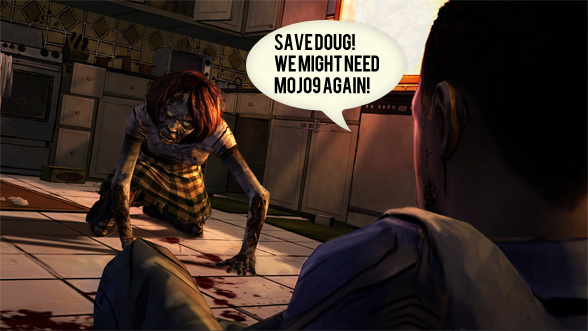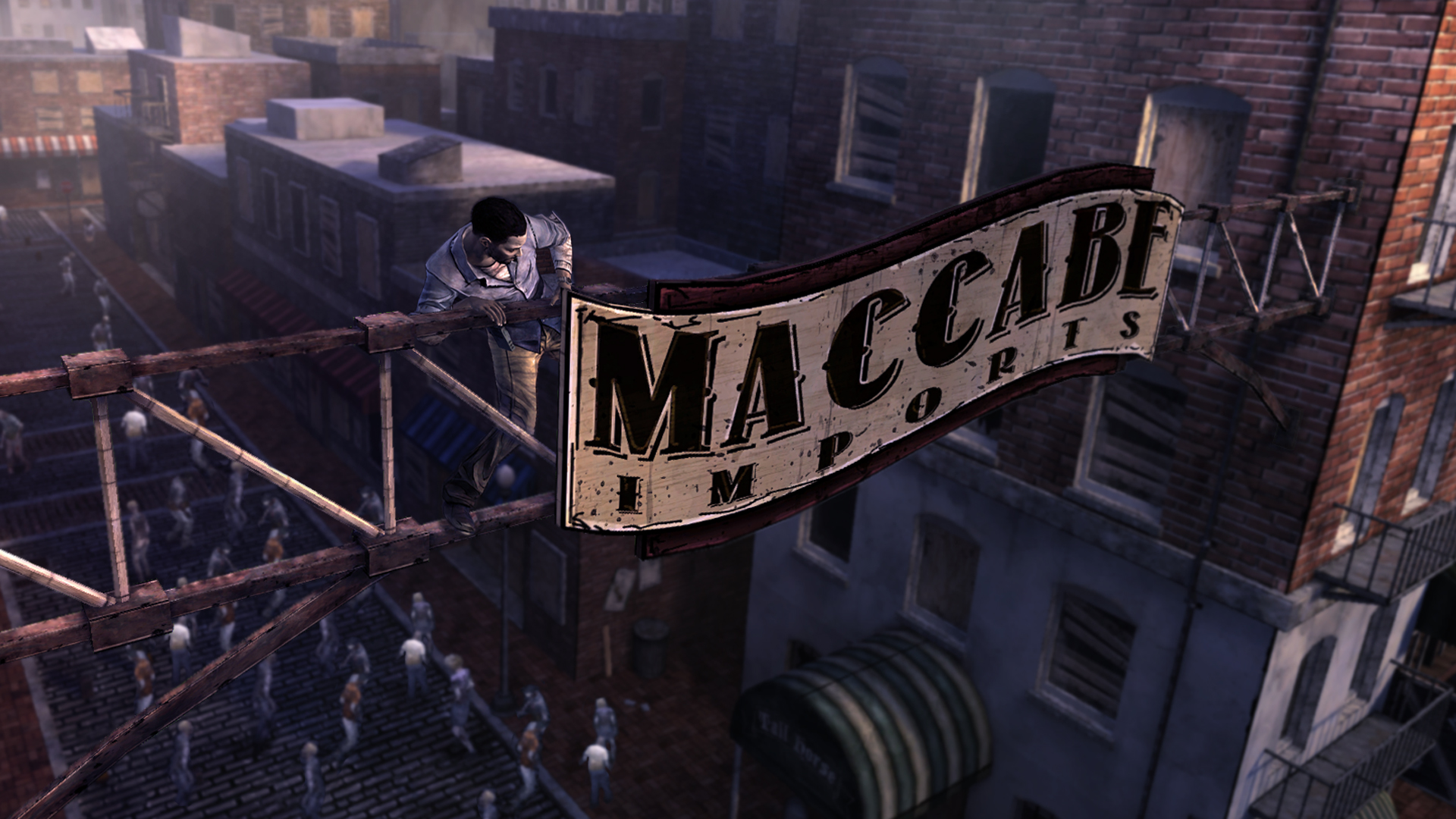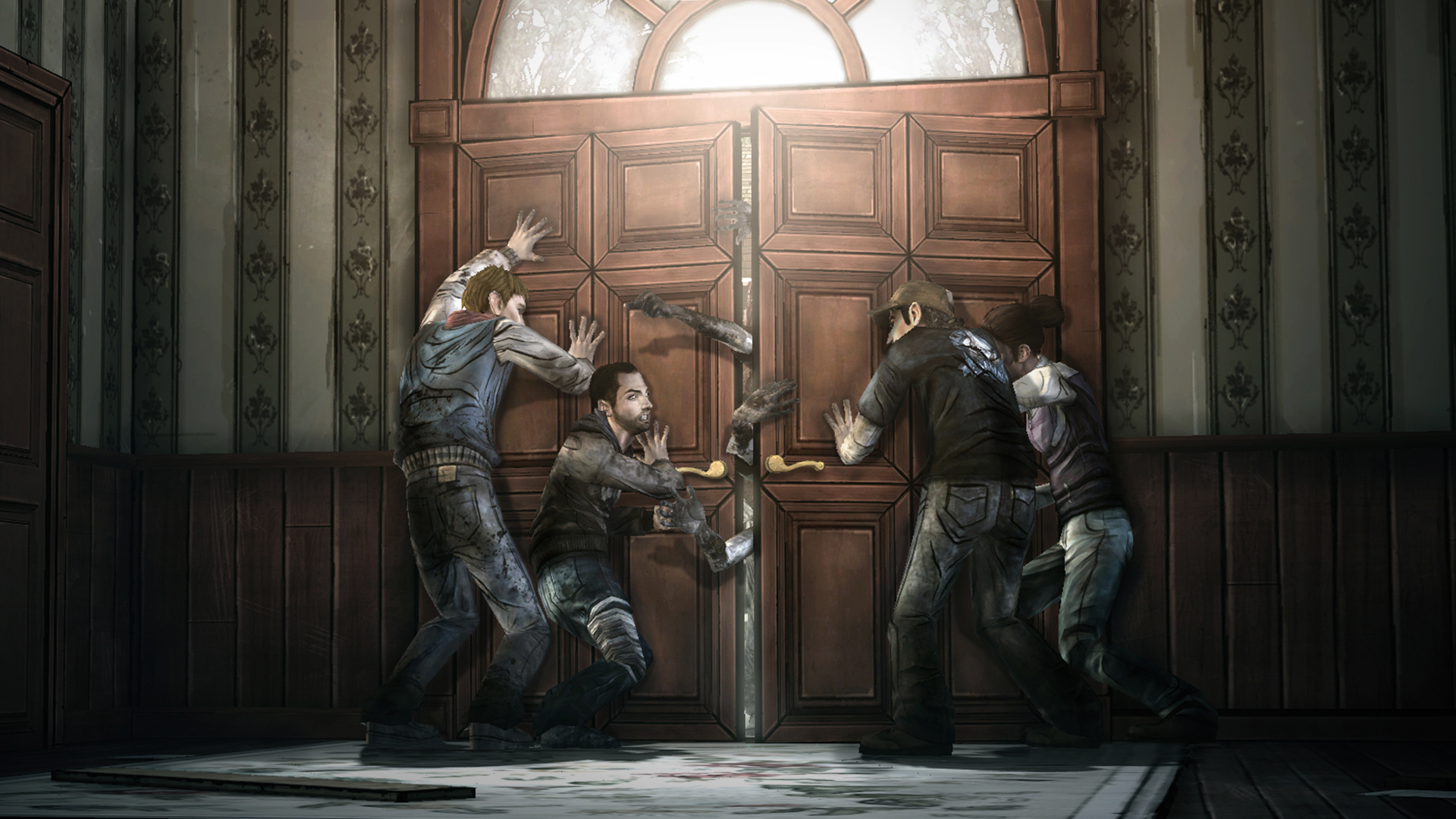Articles

The Walking Dead No Time Left
It was inevitable, wasn't it? Everything that happens in episode five, No Time Left... We should have seen it coming. The choices you made in the previous episodes, no matter how insignificant they may have seemed at the time, they all come back here, mostly to bite you in the ass. And really, we did see it coming, but going into denial mode can be an easy thing to do when you care enough about the characters.

No Time Left is an odd episode in many ways. It's not particularly challenging, nor is it long-lasting as far as actual gameplay goes. Yet, when looking back at the previous episodes, it does exactly what it should do: It repeatedly punches you in the gut, and just playing through to the ending that has to happen, the one you really did see coming all along, no matter how hard you tried to suppress it... It is as big of a challenge a video game has ever given me.
And that's what I was talking about when I previously used the admittedly lame term, Adventure Game 3.0. Previously we've seen graphic adventures -- the Adventure Game 2.0 -- adding puzzles on top of stories. The Walking Dead might be the first game to really successfully integrate the puzzles into the story, an integration that might put some purists off, as the puzzles are simpler and more action oriented than before. Yet they're still, in my mind, pure puzzles, and No Time Left might have the most successful take on them. Jumping across a ledge, a timed puzzle, isn't particularly difficult as far as game mechanism goes, but the thought of Lee falling down to streets filled with thousands of zombies, leaving the rest of the group to possibly abandon the search for Clementine? That's some tough shit, even though you know there always is a restart point of relative safety.
In that sense, Telltale has not only taken the storyline in an emotional direction rarely seen in gaming; they have done the same thing with puzzles.
This truly is, as you might have surmised by now, an admirable episode. That voice on the radio, I had totally expected to be let down by his story. You know how that is; you build something up in your head and it's impossible for the payoff to reach your expectations. Yet Telltale pulled it off, and when you look back to that choice you made X number of episodes ago... It all makes sense. Perfect sense. I should have seen what happened there coming. In fact, I think I kind of did?

That really is the best way I can sum up No Time Left. You should have seen it all coming, and you probably did. You just didn't want it to come to that. Denial, it's a powerful thing.
I don't want to get particularly analytical about this episode or The Walking Dead in general. I'll leave that for smarter people than me, one who has already started writing a more in-depth article about the series. Me, I want to continue to revel in the emotional turmoil the game has left me in. I can't remember any other game affecting me this way.
Telltale could have chickened out with No Time Left. You know, end on a cliffhanger or on a happy note. "Stay tuned for season two for more hijinks!" Luckily, that's not the way they went. There is a cliffhanger of sorts after the credits -- make sure you stick around for it while you're wiping your tears away -- but the ending to season one is final; it is very well done; and it is the only way it could and should end.